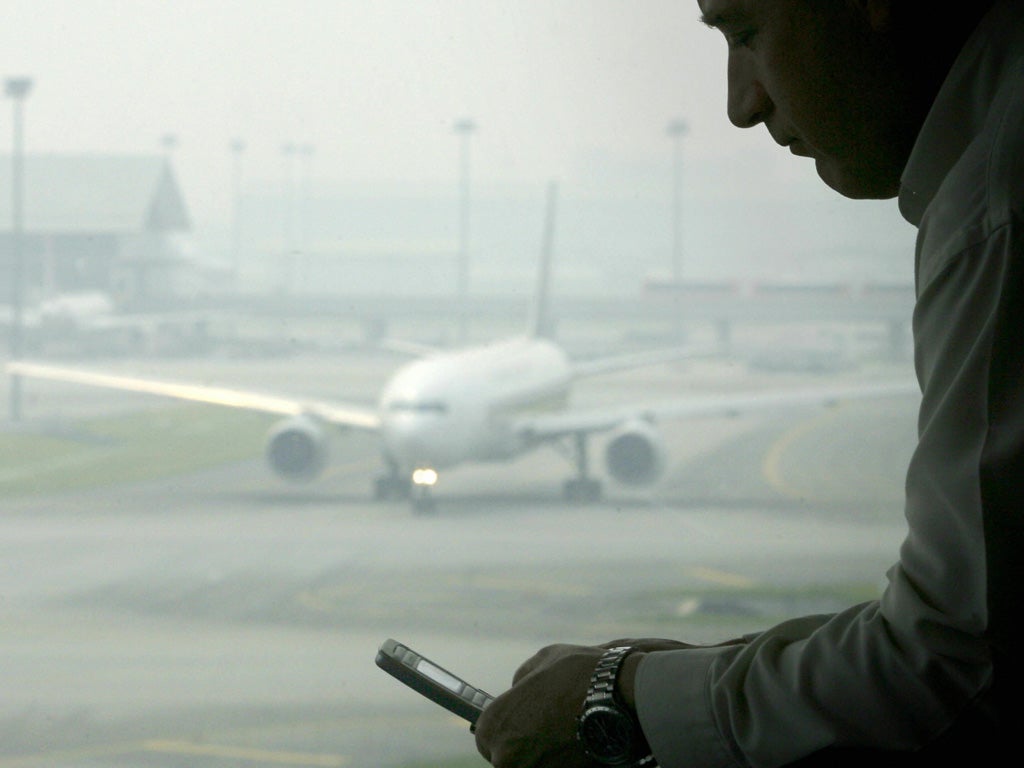Passengers, keep those electronic gadgets off planes and prepare your expectations for landing
The US's Federal Aviation Authority is poised to approve all sorts of personal passenger gadgets for take off. Let's hope the UK's Civil Aviation Authority doesn't follow suit

Technology addicts, rejoice! Soon you may no longer have to endure even a moment’s separation from your gadgets during air travel. The US Federal Aviation Authority (FAA) is set to relax the current ban on the use of laptops, tablets and the like during take-off and landing (though restrictions on internet use will remain in place for now, at least). It seems reasonable to expect the UK Civil Aviation Authority (CAA) to soon follow suit. Here’s hoping it doesn’t.
Has new evidence on in-flight safety come to light? It has not. Instead, in a statement, the FAA attributes its regulations review to “intensely interested” consumer feedback. In other words, it gave in to pressure from pushy passengers. This debate is clearly short on hard, scientific evidence, so allow me to present my own anecdotal findings; these show a strong correlation between frequent flyer types (politicians, CEOs, Alec Baldwin – who was kicked off a flight for using his mobile phone) and people with an inflated sense of their own importance (politicians, CEOs, Alec Baldwin).
Those who oppose the ban call it arbitrary, and they do have a point. Vague claims of “electromagnetic interference” from airlines and the aviation authorities do sound suspiciously like a rejected Star Trek sub-plot, and those sturdy Boeing 747s seem unlikely to drop out of the sky just because an aisle seat passenger in row F sends a verboten text message. The FAA and the CAA have cited examples of aircraft navigation errors coinciding with the use of electronic devices, but neither body has yet offered evidence of a direct, causal link.
Still, the blanket ban isn’t in place because all electronic devices pose a grave threat to safety; it’s in place because some electronic device may pose a grave threat to safety – and that’s justification enough. The only truly safe alternative would be to individually test each new device for aircraft use – a costly measure that’s all but impossible for cabin crew to enforce. We’re all incredibly busy, extremely important people, of course, but is a few minutes of gadget-free peace in exchange for safer travel really such an insufferable imposition?
These points are soon to be lost amid the din of message-alert tones. No matter. Perhaps the greatest public good the ban offered was, in any case, dependent on passengers continuing to believe themselves at the mercy of the petty whims of despotic cabin crew. Now that the culture of consumer entitlement has spread into all sorts of inappropriate contexts, arbitrary rules are a useful reminder that the customer isn’t always right – not when the “customer” is also a “passenger”; one of several, in fact, who’ve all paid for experts to ensure their safety. Say what you like about the Ryanair experience, at least they treat passengers with the indifference we so clearly deserve.

Join our commenting forum
Join thought-provoking conversations, follow other Independent readers and see their replies